Why rowing is a good workout and a great sport
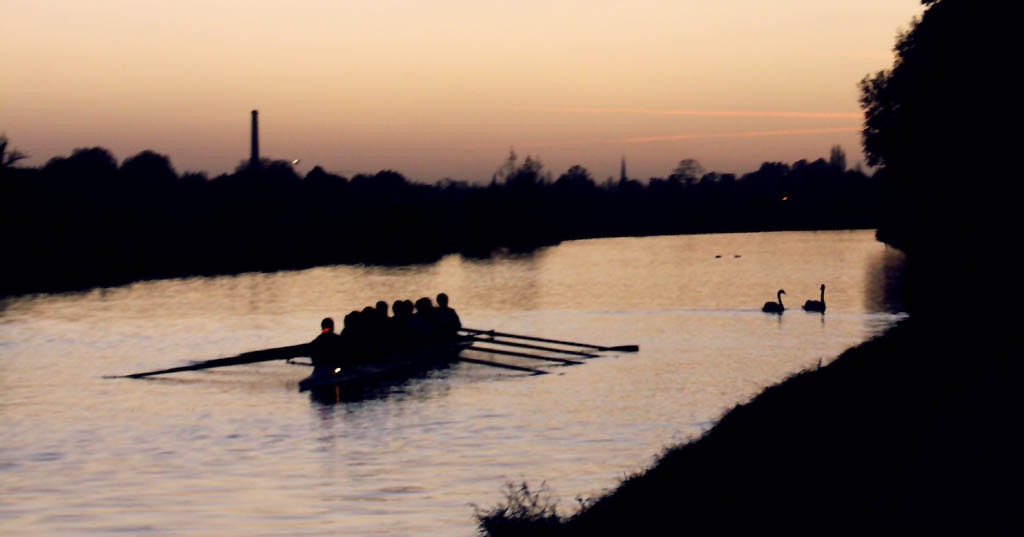
Photo by brendan76 on Freeimages.com
Reading time 17 mins (also a skimmable post)
Learn all about rowing and why it’s such a good workout and sport
This article is relevant for you whether you are female or male. Aged 13 to 100. Competitive or non-competitive. An experienced rower or a novice. A person with disabilities or able bodied. Into sport or looking for a good way to workout. Neural divergent or typical.
I’ve covered it all and dispelled some myths whilst at it.
Where do I begin with this? There are so many positives on why rowing is a good way to workout and a great sport to take part in. It’s hard to decide on a starting point so I’ll just list each one in no particular order. I’ll be predominantly writing about the sport of rowing on the water (OTW) and not the rowing machine, aka an erg (full technical name ergometer). It will get mentioned so continue reading if that’s your thing (or see my post 7 key ways on how to better your erg / rowing workout).
Rowing topics covered
- How rowing affects your body shape
- How old do you have to be to start
- Is it a predominantly male sport?
- Is it expensive?
- Do you have to be fit or sporty?
- How long do you have to be rowing before you can compete?
- I’ve heard of Henley Royal Regatta, what other races are there?
- Will I capsize?
- The community (where everyone is welcome)
- Will I have to get up early?
- I’m short/tall, heavy/light
- Do I have to live near a lake or river?
- Weather conditions
- And then there’s the Lycra!
- Will rowing make me a better person?
FIRST – SOME TECHNICAL TERMS
Before going any further, here are some other technical terms. Sweep rowing is using one oar held with both hands in a boat for a pair, four or eight people (plus cox). The annual epic Oxford v Cambridge university races, held on the Thames Tideway, are sweep rowing. Sculling involves a rower having two oars, one in each hand. The boats can be a single, double, quad or octo (eight plus cox, usually for U16 juniors). Sculling is much easier on the body as it’s a symmetrical movement. Whereas sweep involves a twist in the torso but is much easier to master as there’s less coordination involved. A priceless bit of TV is the rowing challenge in the series A League of Their Own. It shows the participants trying to learn how to scull but they can’t stop capsizing, even in a double.
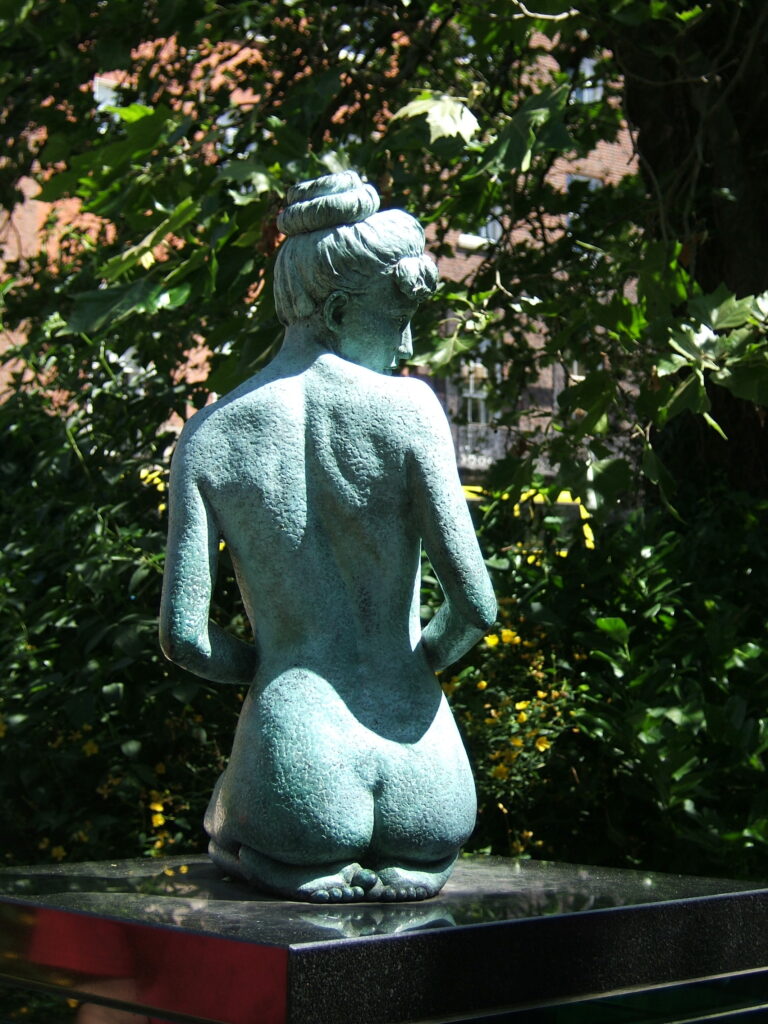
How rowing affects your body shape
Contrary to popular belief, rowing isn’t about having big strong arms and shoulders. Although watching some of my teammates hammering at it in an eight boat, you perhaps wouldn’t think so! It is all about strong legs and core; yep, it’s basically a legs, bums and tums workout but sexier.
There are rowers who will struggle to do 10+ press ups (there is no upper body push action in a stroke). However put us on a leg press or make us do a back squat and we’re way above average-level strong. This is because our training develops the two largest muscles in the body; the gluteus maximus (the main bum muscle) and quadriceps (front of thigh). The development varies with each individual rowers as some predominantly use their glutes, others their quads. The smart ones will develop both.
The rowing machine will have the same effect on your body shape as rowing OTW (on the water) as you’ll use the same body actions / muscle groups, and is an excellent tool for losing weight and/or toning up.
So, in a nutshell, rowing can help you lose weight or gain muscle. Get shapely legs and a pert bum. And shrink your waist. Just don’t look at the palms of our hands (usually ravaged with calluses and blisters!).
How old do you have to be to start
Pretty much any age from around 13 upwards. I started in my 40’s, there are plenty starting in their 50’s and 60’s. If you’ve been involved in a leg-centric sport for years, there’s no reason why you can’t start older than that. A minimum requirement is that you can swim 50 metres and tread water for 2 mins (this applies to all ages).
Our club president is in her mid-90’s and still rows or ergs a number of times a week. There are plenty in their 70’s and 80’s who still race. Again, as with the juniors, it’s kinder on the mature body to scull rather than sweep, although some do both. Also, rowing and erging are low impact sports which lends itself to the 50+ age group far better than running. British Rowing data shows that over a third of its adult (19+) members are over 50, with 281 being 80+ (and that doesn’t include those who aren’t registered with BR).
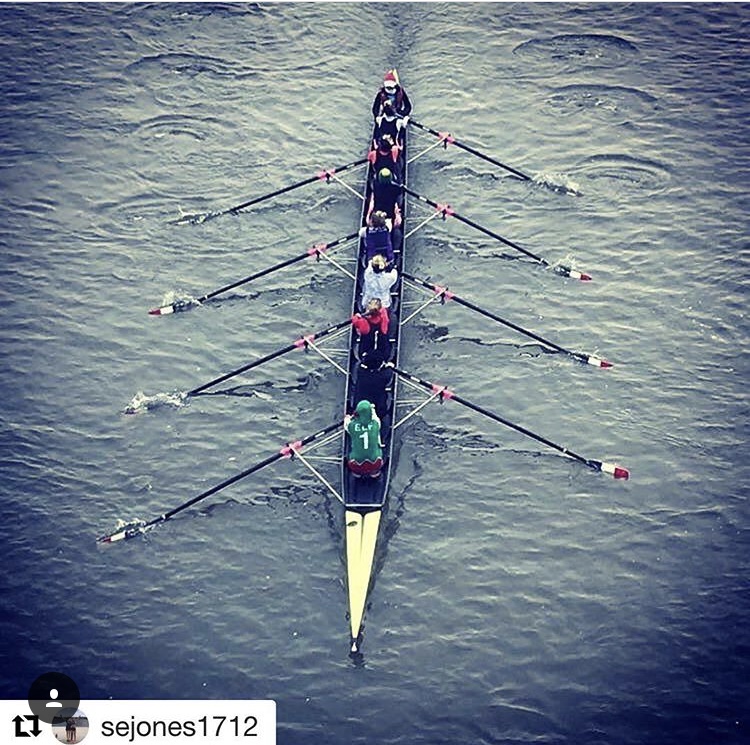
Is it a predominantly male sport?
It used to be, it’s not anymore. I obtained data from British Rowing which shows, as of March 2024, membership % of male / female aged 19-26 and 43-49 is 49.5/50.5 in favour of women. It drops down to 52/48 in favour of men for all other age groups under 60. Once you get to the 60+, the female quotient falls sharply, possibly a throwback to the gender imbalance back in the day. (NB this data doesn’t include rowers who are non-members, usually those who don’t race.)
There are women in our club who had to pretend to be men to be able to race in the 1960’s (and then beat most of them!). I’ll mention again our club president who was a pioneer in promoting and training female rowers on the Thames Tideway for decades and funded Women’s Henley Regatta. The Tideway is also the location every March to host the world’s largest female-only race (approx 5000 rowers) called the Women’s Eights Head of the River Race (aka Wehorr), which attracts crews from all over the world. Meanwhile in the US, intercollegiate rowing has a ratio of 70/30 female/male. So that’s a rather definitive answer to this question!
Is it expensive?
That question is always relative but when comparing most gym memberships to a rowing membership then the resounding answer is no. Most rowing clubs will offer in their membership access to their club boats and oars, a club room for socialising or to work from (great when heating bills at home are high), changing facilities with showers and lockers, a weights gym, rowing machines, possibly other cardio machines and some form of coaching. Sometimes coaching may be an extra fee and can be one2one or paid by a group. Group coaching is the affordable option. Most clubs will have a ‘club coach’ plus a few volunteers who’ll train the juniors (U18) or seniors (18-27*) as part of the membership fee. The aim is to develop them for competitions or UK selection.
A lot of clubs will obtain new rowers (novices) with Learn to Row programmes, usually lasting six weeks, which include land training and water coaching. And I’ve often noticed experienced rowers generously mentoring the less experienced, especially if it seems there is a willingness and natural talent.
*A master is age 27+ although senior squads will retain their strong 30+ rowers.
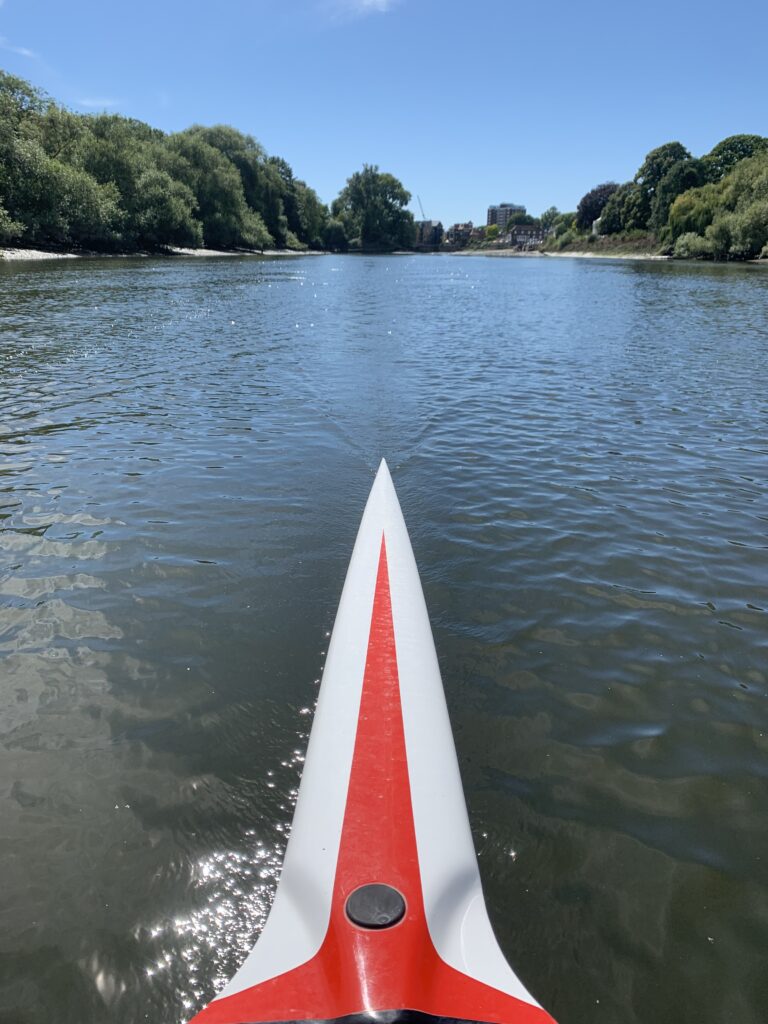
Do you have to be fit or sporty?
Definitely not. You will get fitter but OTW rowing can very much be a recreational pursuit once you have mastered the basics. The basics being keeping the boat stable and coordinating the body and oar movements. I can’t think of many things being as pleasurable as sculling in my single, or with a good friend in a double, on a sunny windless day. I’ll row from Chiswick to Richmond and back; the river there being tree-lined and you can spot seals and Kingfishers. I even once had a dolphin swim under my rigger. This isn’t exercise, it’s moving meditation.
How long do you have to be rowing before you can compete?
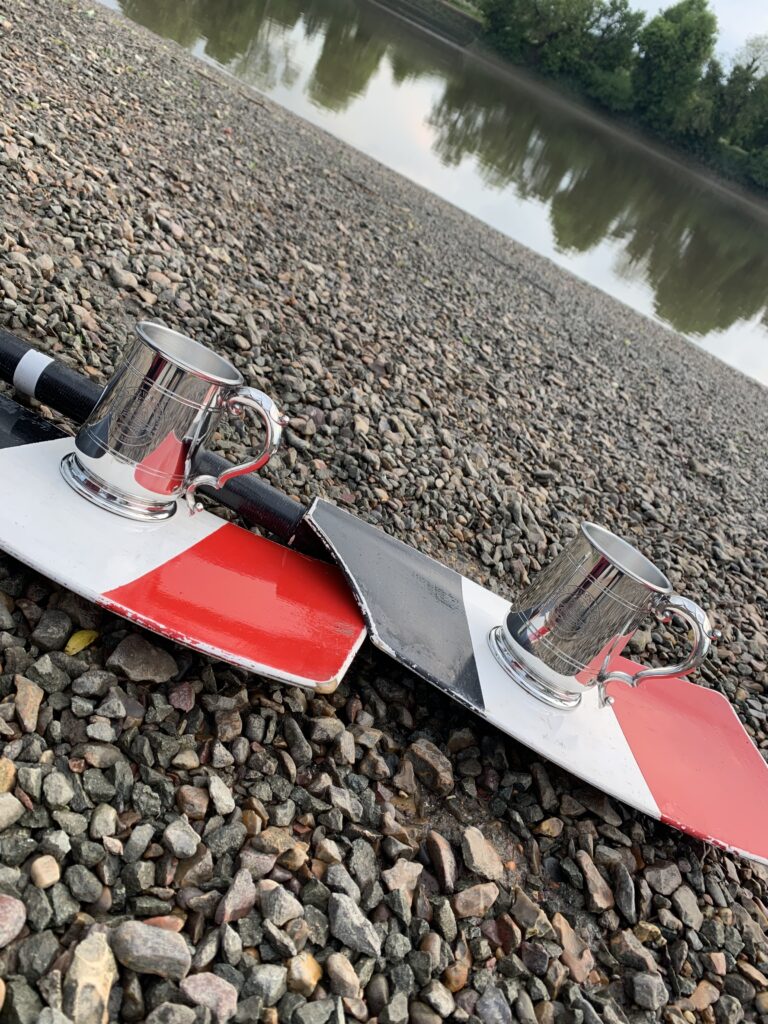
I spent 9 months at a club after completing their Learn-to-Row course doing sweep rowing. This LTR group did some big boat crew racing but didn’t get any decent results. I then went to another club and learnt to scull in a single and won my first race within seven months. To be fair, I was already fit and strong from other activities but my technique was shocking. It was pure determination that got me that win. How long it takes depends on you – how quickly you improve, how much you train and the race availability in your area. You usually start competing against other novices, so you’re all, excuse the pun, be in the same boat.
I’ve heard of Henley Royal Regatta, what other races are there?

There are two types of racing in OTW rowing; head races and regattas. The head races are longer courses, usually between 5-7km and are timed races rather than side by side. Your time at the start line is captured by the start team using both a video and manual timer and finish time the other end will be captured the same way. Faster teams can overtake other boats but normally there is a gap given between boats prior to the start line and the start order is created so that overtaking can hopefully be avoided. Head races take place all over the country from September until March, with the best known taking place on the river Thames.
Regatta racing starts in April until August, with courses between 500m to 2000m. It is side by side or lane racing, such as Henley, and will often involve heats that will lead to a final. Henley hosts a number of important regattas alongside the Henley Royal Regatta, such as Master’s Regatta (27+) and Women’s Regatta, all of which attract rowers internationally. Local clubs offer regattas all over the country with the income generated being an important part of keeping the clubs financially secure. Regatta races are exciting to watch as well as take part in, with rowers ranging from juniors to people in their 80’s, adaptive rowers and novices plus sometimes an ex-world champ thrown into the mix. Yet another enjoyable part of rowing is spending a day at a regatta, eating the home-made cakes and cheering on your teammates whilst waiting for your race.
Will I capsize?
Possibly. I capsized in my first single scull outing when I did an unwarranted sharp turn. Some people continue to capsize throughout their rowing career by hitting things like buoys, debris or other boats (although there is a strict code of conduct to avoid this). This is usually because they don’t turn to look where they’re going, a hazard when you do a sport in which you’re going backwards.
If you’re lucky with your capsize location, you’ll be able to swim with your boat back to a bank, or you’ll be fished out of the water by your coach who’ll be in a launch. The super-capable will be able to climb back into their boats from the water and some clubs offer a capsize drill in a swimming pool to teach this. However rowing has a great safety record, we don’t wear life jackets, and no club would let you go out alone if they didn’t think you were able enough.

The community
From the moment I joined the sport, I knew I’d found ‘my people’. Yes there are, shall we say, characters, but I can’t think of anyone I wouldn’t want to hang around with. Maybe it’s the shared passion of the sport. Or maybe it’s being amongst like-minded active people. I don’t know what it is, and, outside of rowing, I can be ‘particular’, in that I don’t click with everyone. But, certainly from my experience, rowers are generally great people. The odd one who isn’t never hangs around for long.
And some people are outstanding. During the covid lockdowns, when clubs were closed, a group of individuals set up an interclub challenge on Strava. It kept us fit and involved in teamwork; it showed what our community can do to look after its own. And it kept us in touch with one another, checking in that everyone was okay.
And the diversity is to be celebrated. There are grafters and privileged. Young and old. Gay and straight. Wealthy and strugglers. Different skin colours and ethnic backgrounds. Highly educated and not. And a number who are possibly somewhere on the spectrum. We have three rowers who are blind, they go out with others who steer for them. Sadly our club doesn’t have adaptive boats for people with other disabilities, but I’ve been to plenty of regattas and watched adaptive races, so there are other clubs that do.
Basically what I’m trying to say is this. When there is a common denominator such as rowing, you can sit down with another club member, with whom, outside of the sport, you may have nothing in common with, but you will have an instant rapport. You’ll also have people to reach out to in times of need and quite likely develop life-long friendships (and quite a few have met their other halves too).

Will I have to get up early?
That depends on which type of rower you are. The hardworking seniors do have to get up early to fit in their two daily scheduled weekend training sessions. Juniors/uni students too have to train before classes and also fit in double sessions. And if you have a coach and their hours mean early hours, then there isn’t much choice. However most masters will train at a time that suits their group and even better, if you’re a single sculler you train when it suits you.
I’m short/tall, heavy/light
If you look at a typical Olympian rower, they are tall and well built. So if that’s your build, then walk into any club, they’ll love you. We used to have a member who was 6ft 3” and 95kg; she was an awesome rower and at one point, the best indoor rower in the UK (being heavy is an advantage on an erg). And she didn’t even look that tall amongst all the other female 6 footers and the 6ft 6” coach. She came into the sport when our then club captain saw her serving behind a pub bar. Captain pleaded with her to come down to our club to give it a go and it changed her life.
Lightweights are classed as below 59kg for women and 72.5kg for men, and it’s usually said that a lightweight will need to be technically better than a heavyweight to move a boat fast. As boats need to be the right size for your weight, rowing is a sport where people openly talk about their weight. There is no negativity or embarrassment about being light or heavy, it’s just a number.
There are many rowers who are on the short side, typically below 5ft 5” women, 5ft 8” men. Like the lightweights, they can do exceptionally well, especially if they have a good level of cardio fitness, technique and a decent relative strength ratio. I’m a lightweight and not particularly tall at 5ft 7”, and there are people whose erg scores are far superior to mine. But I’m faster than them OTW as my relative strength from weight training comes into play. The erg brand Concept 2 does have a weight adjustment calculator which removes the heavyweight benefit from the final scores. You’ll find most heavyweights ignore it and the lightweights love it. Ultimately, the bottom line is, at club level, it genuinely doesn’t matter what size/weight/height you are.
Do I have to live near a lake or river?
As with most regularly performed hobbies, it certainly helps to not be too far from your club. Or the coast – coastal rowing is a growing sport. I’ve heard if you haven’t fully developed your river rowing technique it can be detrimental to adopt the slightly different technique of coastal rowing. Or if you’ve only coastal rowed, you may find inland rowing tricky (narrower boats, more finesse needed). But, unless you’re exceptionally remote, there’ll be something not too far, either river or coastal, as there are 530 rowing clubs in the UK!

Weather conditions
I don’t know if the Olympian rowers train OTW in the dark at Caversham but it’s pretty much a no-go for the rest of us. High winds, fog and lightning are the elements that will also prevent us from going OTW. And fast tidal flows after heavy rainfall, where a red flag warning is given, will usually mean doing an erg instead. Rain, snow, hot weather are all fine, just wear the right gear and take the right precautions.
And then there’s the Lycra!
If you row on London’s river Thames between Putney and Kew, aka the Tideway, you’ll be able to fully immerse yourself in the fashion of Tideway Attire. Think 1980’s garish prints and colours and that’s what you’ll be aiming for. If it’s bright (hi-viz yeah!), colour-clashing, and just downright wrong, it’s perfect. I usually find my kit in the ‘sale bucket’ because no one else will wear it. All clubs have team kit colours, which also tends to be awful. I love the fact that top clubs Leander and Westminster School have boys and men rowing in the strongest bubble gum pink imaginable.

Will rowing make me a better person?
I have yet to find a photo of a certain sporty Russian leader rowing so I’m going out on a limb with this one… yes it will!! There’s being part of a group, which is important for a hive species such as humans. And being part of a team brings with it, ahem, comradeship. Then there’s the fitness aspect, you will get fitter even if you just paddle (leisurely rowing) a couple of times a week. Ditto improving your body shape. Learning a new skill is important for the brain at any age, so that’s a tick.
And then there’s the unexpected bonus of being able to make small talk with strangers. I can confidently go to any dinner party or gathering and know I’ll at some point hold my own in a conversation. Most people have jobs fairly uninteresting to the masses. As soon as I mention I row, which I always do, there is immediate interest from both men and women of any age. You won’t get that with yoga or Pilates. And it turns out many people will have some sort of experience themselves. Either at school or uni, as a rower or cox or on an erg; or know a friend who has. So it usually turns into a mutually enjoyable conversation.
Last year I went to a sailing club do on the Isle of Wight as a plus one and ‘rebelliously’ wore my rowing club blazer. I met the guest of honour, Princess Anne, who was patron of the club. I was pointed out to her as an interloper and why. She immediately she dropped the sailing topic and the conversation turned to rowing, of which she too had experienced back in the day (by the way, she’s wonderfully warm as well as highly intelligent).
Another encounter I had at a dinner party was when I was sat next to the ex-Chelsea footballer, Frank Lampard. Of course I wanted to know all about his pre-match eating habits (peanut butter on toast and coffee). But he wanted to know all about correct erg technique and how to improve his 2k test (he was already achieving a good score – strong legs!).
My conclusion – rowing has made me a more confident, fitter, better-shaped and happier person.
I’m acutely aware this has turned into a novel. As I said, it’s hard to know where to start, and, so it appears, when to finish. I am in no doubt that I will continue to think of more points and will be prone to adding to this post over time!
This is a link to the UK governing body, British Rowing, where you’ll find information about UK clubs and more.
© Ijustwantmybodyback.com